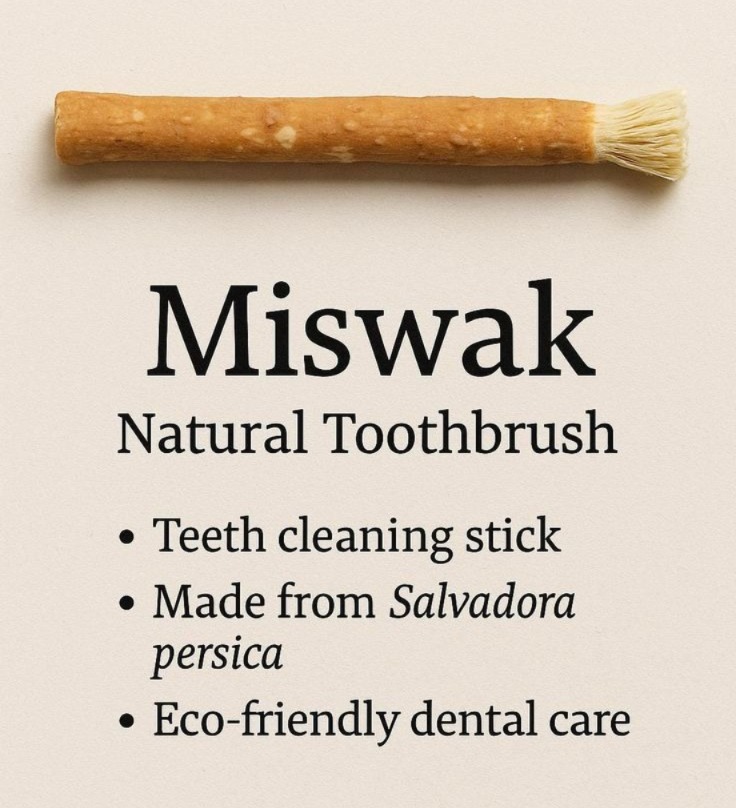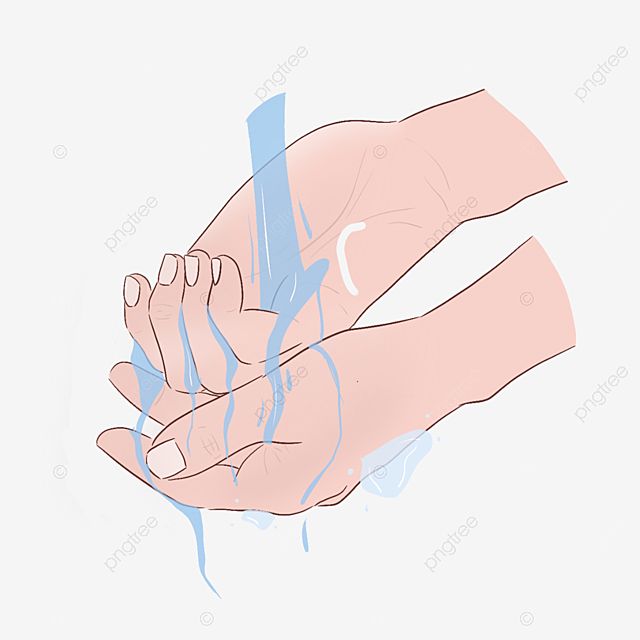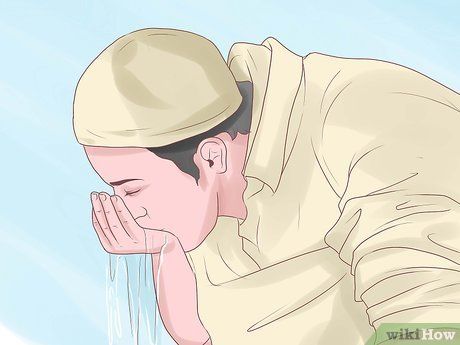
Sunnah in Wudu is what transforms a simple act of washing into a spiritually uplifting ritual. These beautiful practices of the Prophet Muhammad ﷺ add depth, meaning, and extra reward to every step you take toward Salah. Through the Sunnah, Wudu becomes more than just a requirement. It becomes a moment of peace, focus, and closeness to Allah.
Each drop of water has a purpose. Each action prepares your heart to leave behind distraction and enter prayer with clarity and devotion. By learning and reviving the Sunnah in Wudu, you elevate not only your purification but the quality of your entire prayer.
This guide will help you understand the essential parts of Wudu, the Sunnah acts that complete it, the dua afterward, and how these small actions can bring enormous blessings into your daily worship. Let your Wudu be a fresh start every time you stand before Allah.
Introduction – Why the Sunnah in Wudu Matters

Wudu is not just a routine before prayer. It is a moment of preparing the heart before standing in front of Allah. When we follow the Sunnah of the Prophet Muhammad ﷺ in Wudu, we are not only completing the obligatory parts, but also elevating our purification with actions that bring extra reward. The Sunnah makes Wudu more complete, more spiritually rewarding, and a means of cleansing minor sins. It helps us enter Salah with a calm heart, renewed faith, and deeper presence.
The spiritual purpose behind Wudu
- Spiritual purification: Wudu purifies both body and soul, symbolizing the cleansing of physical and spiritual impurities, including minor sins.
- Washing away sins: Each part washed in Wudu is believed to remove sins and emotional burdens, leaving the believer lighter and more at peace.
- Spiritual renewal: It refreshes faith and helps purify the heart from negative traits, strengthening sincere devotion.
- Mindfulness and focus: Wudu clears the mind and awakens the senses, preparing the believer to enter Salah with full presence and focus on Allah.
- Mind-body connection: Islam teaches that the physical and spiritual are interconnected. Wudu honors the body as the home of the soul and maintains a balance between physical cleanliness and spiritual well-being.
How following the Sunnah in Wudu elevates your Salah and cleanses the heart
The Sunnah practices in Wudu, like washing each limb three times or using a miswak, carry spiritual value that enhances the experience. Imitating the Prophet ﷺ in these details brings a person closer to his example, earning the pleasure of Allah. It completes the purification, helps wipe away minor sins, and strengthens the heart’s readiness for Salah, making the transition from daily life to worship smooth and meaningful.
Understanding the Difference Between Fard and Sunnah in Wudu
Wudu has two types of actions. The first group is Fard, which every Muslim must perform for their prayer to count. The second group is Sunnah, which completes and beautifies the act of worship. When you fulfill the Fard, your prayer remains valid. When you add the Sunnah, you gain extra reward and follow the beautiful example of the Prophet ﷺ. Think of it as meeting the basic requirement versus performing wudu with care, excellence, and love for Allah.
What is Fard (obligatory) in Wudu
Fard actions are the core essentials. If any of these are left out, the wudu is invalid and the prayer cannot be performed. They include:
- Washing the entire face
- Washing the arms up to the elbows
- Wiping over the head
- Washing the feet up to the ankles
Along with the intention from the heart. These are the non-negotiable steps that make wudu valid in the first place.
What is the Sunnah in Wudu (Recommended)
Sunnah actions are the extra steps that the Prophet ﷺ consistently practiced, which increase reward and make the wudu more complete. Examples include:
- Washing the hands first
- Rinsing the mouth and nose
- Wiping the ears
- Following the proper order with care
They are not required for the prayer to be valid, but they turn wudu into a more spiritually uplifting act.
Key differences explained clearly
- Minimum requirement vs. excellence
Fard ensures your Wudu is valid. Sunnah adds beauty, care, and closeness to the Prophet’s ﷺ example. - Number of washes
Washing once fulfills the Fard. Washing three times follows the Sunnah and brings more reward. - Parts included
Fard applies only to specific limbs: face, arms, head, and feet.
Sunnah includes additional acts like:
• Washing the hands at the start
• Rinsing the mouth and nose
• Wiping the ears
• Making Dua afterward - Order and consistency
Fard guarantees completion. Following the proper order without interruption is Sunnah and reflects a more mindful practice. - Spiritual impact
Fard removes the state of impurity. Sunnah brings peace to the heart and prepares you better for Salah.
Why neglecting the Sunnah in Wudu means missing extra blessings
Skipping the Sunnah might still make your wudu valid, yet you lose the chance to follow the Prophet ﷺ more closely and collect greater blessings. Sunnah actions bring calmness, cleanliness, and a deeper connection with Allah. These small efforts make a big difference in the reward and spiritual impact of every prayer.
Sunnah Acts in Wudu – Step-by-Step Breakdown
1. Starting with Bismillah – A key Sunnah in Wudu

Beginning Wudu by saying “Bismillah” sets the intention and reminds the believer that purification is an act of worship, not a routine. It brings the heart into a state of mindfulness and helps establish a spiritual connection from the very first moment of Wudu, following the guidance of the Prophet Muhammad ﷺ.
2. Using the Miswak or brushing teeth before Wudu

Cleaning the mouth with Miswak or a toothbrush before Wudu is a Sunnah that promotes cleanliness and freshness. The Prophet ﷺ frequently encouraged the use of Miswak, showing its benefit for both oral hygiene and spiritual purification. This simple action prepares the mouth that will recite Quran and zikr during Salah.
3. Washing hands three times before dipping in water

Washing the hands up to the wrists at the beginning of Wudu ensures that the hands are clean before touching the water used in purification. This Sunnah emphasizes the importance of hygiene and mirrors the way the Prophet ﷺ began his Wudu, reinforcing awareness and intention from the start.
4. Rinsing the mouth and nose three times

Rinsing the mouth (madhmadhah) and inhaling water into the nose (istinshaq) help remove impurities and refresh the senses. The Prophet ﷺ practiced these actions consistently and encouraged doing them thoroughly, because cleanliness of the mouth and nose contributes to a more complete state of purification.
5. Wiping the full head and ears once

Wiping over the head with wet hands is a required part of Wudu, and following the Sunnah includes wiping the ears as well since they are part of the head. The Prophet ﷺ wiped his ears inside and out, showing that every part of the body involved in prayer should be cleansed and honored.
6. Maintaining the order and continuity of washing
Following the same sequence the Prophet ﷺ used—face, arms, head, and then feet—keeps Wudu organized and focused. Performing each step without long interruptions helps the believer remain present and spiritually engaged, turning Wudu into a smooth and disciplined act of devotion.
7. Facing the Qiblah while performing Wudu
Facing the Qiblah during Wudu is a recommended Sunnah that adds a layer of spiritual direction and focus to the purification process. Turning toward the Ka‘bah symbolizes intention and devotion, reminding the believer that this cleansing is preparation for standing before Allah in Salah. It transforms Wudu from a simple physical act into a more mindful and worshipful moment.
If you are unsure of the exact direction, you can check it easily here Find Qibla Direction
8. Avoiding water wastage
Islam teaches balance in every aspect of life, including how we use water. The Prophet ﷺ performed Wudu with very little water, even while having access to more. Using only what is needed reflects gratitude, responsibility, and awareness of our blessings. This Sunnah encourages Muslims to be intentional and avoid excess, protecting the environment while seeking spiritual purity.
9. Performing Wudu calmly and without haste
Completing Wudu with calmness keeps the heart focused and the mind present. Rushing through it can lead to missing parts of the body and losing the spiritual essence of the ritual. The Sunnah is to perform each step with care, allowing the believer to transition smoothly from daily life to worship with tranquility and renewed connection to Allah.
10. Saying the Du’a after completing Wudu
After finishing Wudu, reciting the sunnah supplication brings the purification to a meaningful conclusion. This Du’a expresses gratitude, seeks forgiveness, and asks Allah to make the person among the righteous and the purified. It marks the shift from physical cleansing to spiritual readiness for Salah, multiplying the blessings earned through Wudu.
The Du’a After Wudu and Its Reward
Reciting a supplication after completing wudu is a beautiful Sunnah that strengthens the connection between physical purity and spiritual elevation. The Prophet ﷺ taught us that remembering Allah right after wudu increases reward and opens the heart for prayer with greater sincerity and focus.
Arabic text and meaning of the Wudu supplication
After finishing wudu, a Muslim may say the well-known supplication:
اللهم اجعلني من التوابين واجعلني من المتطهرين
أشهد أن لا إله إلا الله وحده لا شريك له، وأشهد أن محمداً عبده ورسوله
Allahumma aj‘alni mina at-tawwabeen, waj‘alni mina al-mutatahhirin
Ashhadu an la ilaha illa Allah wahdahu la sharika lah, wa ashhadu anna Muhammadan ‘abduhu wa rasuluh
Meaning in English:
“I bear witness that there is no deity worthy of worship except Allah alone with no partner, and I bear witness that Muhammad is His servant and His Messenger. O Allah, make me among those who constantly repent and among those who purify themselves.”
Some narrations also include praising Allah and seeking forgiveness, which reflects humility and gratitude after completing purification.
This Du’a reminds the believer that wudu is not only about washing the body but also renewing faith and purifying the heart.
The promise of Jannah for those who recite it sincerely
The Prophet ﷺ promised incredible reward for those who perform wudu properly and recite this testimony afterward with a heart full of belief. As he ﷺ said:
«مَا مِنْكُمْ مِنْ أَحَدٍ يَتَوَضَّأُ فَيُسْبِغُ الْوُضُوءَ ثُمَّ يَقُولُ: أَشْهَدُ أَنْ لَا إِلَهَ إِلَّا اللَّهُ وَحْدَهُ لَا شَرِيكَ لَهُ، وَأَشْهَدُ أَنَّ مُحَمَّدًا عَبْدُهُ وَرَسُولُهُ، إِلَّا فُتِحَتْ لَهُ أَبْوَابُ الْجَنَّةِ الثَّمَانِيَةُ يَدْخُلُ مِنْ أَيِّهَا شَاءَ».
“There is no one among you who performs wudu and does it well, then says:
‘I bear witness that there is no god except Allah, alone with no partner, and I bear witness that Muhammad is His servant and Messenger,’
except that the eight gates of Paradise will be opened for him, and he may enter through whichever one he wishes.”
Source: Sahih Muslim 234
This amazing reward shows how something that takes just a few seconds can unlock unimaginable blessings, simply by combining sincerity, remembrance, and following the Sunnah. Every time a believer finishes wudu, it becomes a new opportunity to wash away sins, step closer to Paradise, and strengthen their bond with Allah.
The Hidden Benefits of Following Sunnah in Wudu
Following the Sunnah in wudu adds a deeper beauty to the act of purification. Small details like using miswak, washing each limb three times, or starting with the right side may seem simple, yet they carry profound spiritual benefits that go far beyond cleanliness.
Strengthening the bond with the Prophet ﷺ
Every time a believer follows the Sunnah, they are consciously choosing to walk in the footsteps of the Prophet ﷺ. Wudu becomes a way of expressing love, loyalty, and gratitude for his guidance. Imitating him in these actions builds a personal connection with his example and earns the pleasure of Allah who commanded us to follow him.
Gaining purity of body and soul through Sunnah in Wudu
The Sunnah practices help complete physical purification with excellence. Yet they also purify the heart by removing minor sins, increasing mindfulness, and renewing a believer’s intention. With each Sunnah act, the body becomes cleaner and the soul becomes lighter, ready to turn toward Allah with sincerity.
Preparing the heart for khushu’ in Salah
Wudu is the gateway to prayer. When performed with care, attention, and Sunnah practices, it creates a calm and focused mindset before standing in front of Allah. Instead of rushing from daily tasks into Salah, the believer transitions gently, allowing the heart to settle, distractions to fade, and khushu’ to grow.
Learn Proper Wudu with Certified Quran Teachers
Learning wudu correctly is so much easier when you have a qualified teacher guiding you. One-to-one lessons ensure every detail is taught properly, any mistakes are corrected right away, and you gain the confidence that your worship is done the right way. With a supportive instructor by your side, wudu becomes a meaningful act of devotion rather than something rushed or confusing.
How guided lessons help perfect your practice
A personal teacher helps you understand both the practical steps and the spiritual purpose behind wudu. You get live demonstrations, immediate feedback, and the chance to ask questions that books or videos can’t answer. This makes your learning experience smooth and stress-free, especially for beginners or those who want to improve their accuracy.
Areeb Academy’s online Fiqh and Quran recitation classes for all ages
At Areeb Academy, all classes are 1-on-1, fully flexible with scheduling, and perfectly tailored to your pace. Our teachers are highly qualified, certified in Quran and Islamic studies, and bring years of experience teaching students from around the world. They are native Arabic speakers and fluent in English, making communication easy and lessons engaging.
These courses are especially designed for Non-Arabic speakers, so you can learn everything step by step without feeling overwhelmed. Whether you are a child or an adult, just starting out or looking to refine your recitation and fiqh knowledge, you’ll always feel encouraged and supported in your learning journey.
Conclusion – Let Your Wudu Be a Source of Light

Every drop of water you use in wudu holds a blessing. It washes away sins, softens the heart, and prepares you to stand before Allah with humility and purity. When you revive the Sunnah in wudu, your purification becomes more than a simple routine. It becomes a light that will shine for you on the Day of Judgment, reflecting your love for following the footsteps of the Prophet ﷺ.
Such a beautiful act of worship deserves to be learned correctly and practiced with confidence.
If you would love guidance from qualified, caring teachers, Areeb Academy is here to help you every step of the way. Our 1-on-1 online classes for Quran, Tajweed, and essential Fiqh are designed especially for Non-Arabic speakers, with flexible timings and expert instructors who are native Arabic speakers and fluent in English.
🌟 Start your journey with a FREE trial class and feel the difference in your worship right from the first lesson.
Begin learning today and let your wudu fill your life with light and spiritual calm.
Frequently Asked Questions About Wudu
1. Is my Wudu valid if I forget one of the Sunnah acts?
Yes. Sunnah actions complete and beautify Wudu, but missing one does not invalidate it. Only the Fard acts must be done for Wudu to be valid.
2. Do I have to say Bismillah before Wudu?
Saying Bismillah is Sunnah. You should try to say it as it brings more reward, but if forgotten, your Wudu still counts.
3. Can I wear makeup or nail polish during Wudu?
Anything forming a waterproof barrier (like nail polish) must be removed so water can reach the skin. Breathable products or henna do not block water.
4. Does touching my spouse break Wudu?
According to many scholars, it does not break Wudu unless it leads to sexual discharge. Opinions vary, so follow the ruling you were taught or feel confident in.
5. Can I wipe over socks instead of washing feet?
Yes, if you have wudu before wearing them and they cover the ankle. The duration differs for residents and travelers.
6. Is Wudu required before reading the Quran?
For reciting from memory, no. For touching the physical Mushaf, the majority of scholars say you need Wudu.
7. Does laughing during Wudu break it?
Laughing does not break Wudu. Laughing during Salah is a different matter according to some scholars.
8. Can Wudu remove sins?
Yes. The Prophet ﷺ taught that sins fall away from the limbs as they are washed, especially when done with sincerity and proper Sunnah.
9. Can children learn Wudu from a young age?
Absolutely. Children should be encouraged gently to perform Wudu and Salah once they reach age seven, helping them develop strong habits early.


